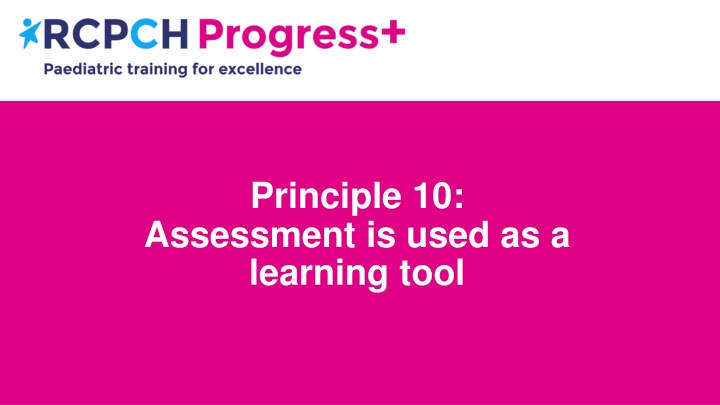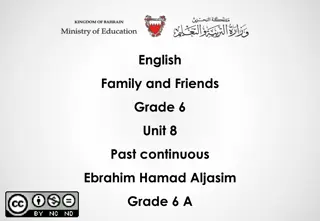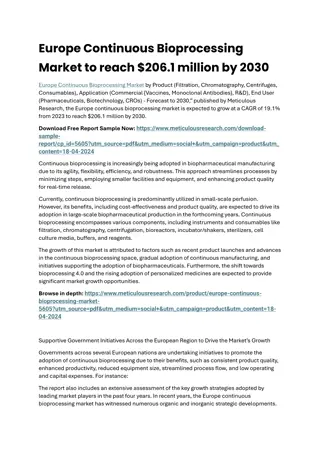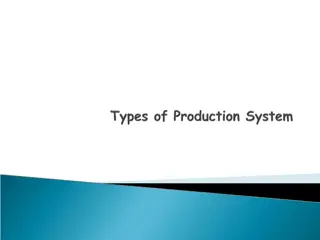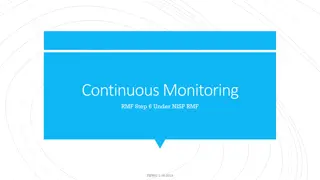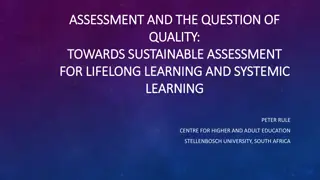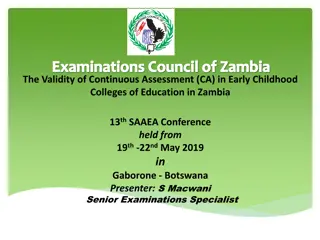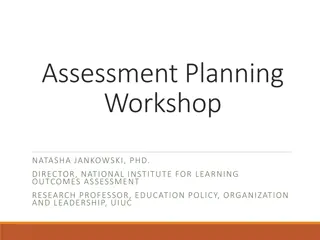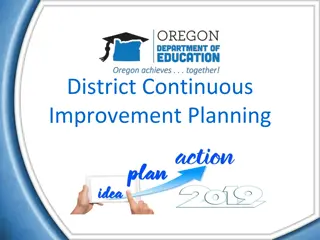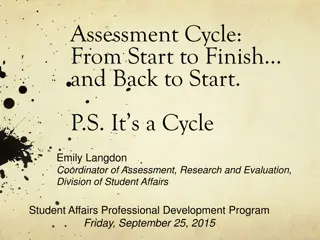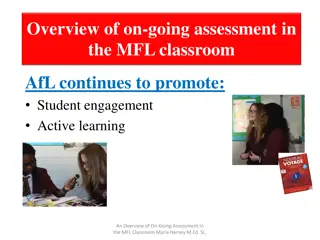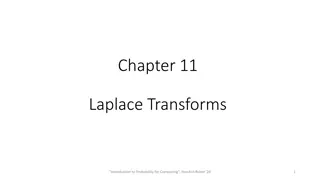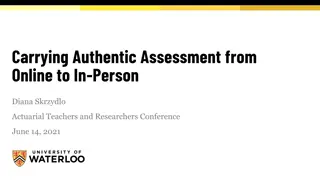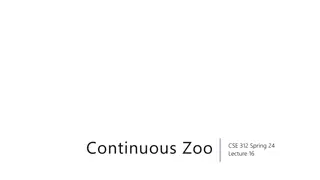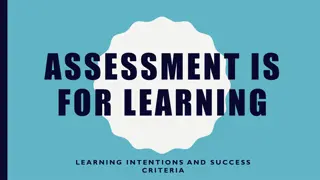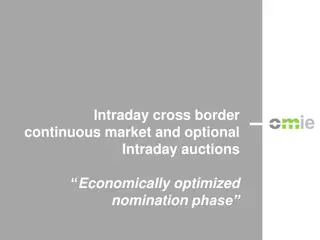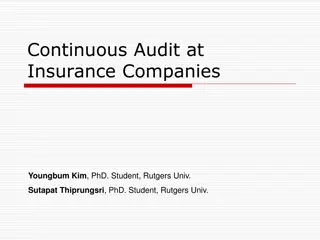Effective Assessment for Continuous Learning
Emphasizing assessment as an integral part of the learning process, supporting ongoing student development and growth.
Download Presentation

Please find below an Image/Link to download the presentation.
The content on the website is provided AS IS for your information and personal use only. It may not be sold, licensed, or shared on other websites without obtaining consent from the author.If you encounter any issues during the download, it is possible that the publisher has removed the file from their server.
You are allowed to download the files provided on this website for personal or commercial use, subject to the condition that they are used lawfully. All files are the property of their respective owners.
The content on the website is provided AS IS for your information and personal use only. It may not be sold, licensed, or shared on other websites without obtaining consent from the author.
E N D
Presentation Transcript
Principle 10: Assessment is used as a learning tool
The aim of this presentation To demonstrate how formative assessments can be used as a learning tool by: 1. Showing how they can be used to develop expertise through Miller s Pyramid 2. Showing how to approach adult learning through the Tenets of Andragogy 3. Giving you our top tips to use assessments more effectively 4. Giving you some useful resources if you want to read further
Assessment is used as a learning tool It s easy to think of assessments as tick box exercises However, used properly assessments can be a valuable learning tool They give trainees the chance to showcase their development while getting beneficial feedback from experienced clinicians
Millers Pyramid of Clinical Competence EXPERT As a trainee, you are making your way to the top level of Miller s Pyramid1 Each step brings you closer to expertise Knows all about fast recall of knowledge Knows how Interpreting and applying what you know Shows Demonstrating what you ve learnt Does Performing what you know in practice DOES SHOWS Direction of progress KNOWS HOW KNOWS NOVICE
Millers Pyramid of Clinical Competence Assessments are a great way to make your way up the last part of the pyramid, improving your performance as you adapt to feedback from experts EXPERT Assessments getting you to the top! DOES
Lets get andragogical! A key component of adult learning theory is the concept of andragogy the practice of teaching adult learners2 Andragogy has 5 key tenets These tenets should hopefully feel very relatable to you! Motivation is greatest when it s internal and when what is being learnt has real-life applications
Lets get andragogical! For the trainee Given that adult learning is best when it s self-discovered, self-directed and has clear real-life applications, the next step is clear: Reflective practice is needed to identify learning needs3 For the trainer To gain the most from identified learning needs, it is key that trainers recognise the knowledge and experience the trainee has and then build upon this4 Learn how to give feedback in a way that is constructive and addresses the learning needs of the trainee5
Five practical tips for trainees 1. Start to think of assessments as both a learning tool and a tool to demonstrate that you re learning 2. Try not to think of assessments as a platform to showcase expertise but as a means to demonstrate improvement 3. Regularly reflect on your own learning needs and think of assessment opportunities that may help address them 4. Be opportunistic! 5. True assessments done well need time and space give it the time it deserves
References 1. Miller GE. 1990. The assessment of clinical skills/competence/performance. Academic Medicine; 65(9 Suppl); S63-7 Bennett EE, Blanchard RD and Hinchley KT. 2012. Applying Knowles Andragogy to Resident Teaching. Academic Medicine; 87(1); 129 Academy of Medical Royal Colleges and Conference of Postgraduate Medical Deans of the United Kingdom. 2018. Academy and COPMeD Reflective Practice Toolkit. Academy of Medical Royal Colleges; available online at https://www.aomrc.org.uk/wp- content/uploads/2018/09/Reflective_Practice_Toolkit_AoMRC_CoPMED_0818. pdf Clark KR. 2018. Learning Theories: Constructivism. Radiologic Technology; 90(2); 180-182 Threin C et al. 2020. Feedback in medical education a workshop report with practical examples and recommendations. GMS Journal for Medical Education; 37(5); Doc46 2. 3. 4. 5.
Find out more on the RCPCH website www.rcpch.ac.uk/progressplus
